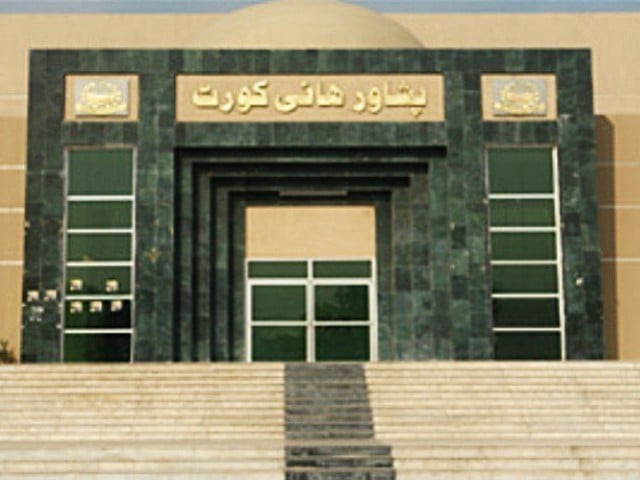Military court convicts entitled to 'file petitions'
Two-member PHC bench issues detailed verdict in case

In a landmark judgment, the Peshawar High Court (PHC) has ruled that individuals convicted by military courts had the constitutional right to file writ petitions before the High Court. The decision came as a significant blow to the federal government's stance, which had argued that such petitions were inadmissible due to the availability of alternative forums for appeal.
A two-member bench comprising Justice Waqar Ahmad and Justice Sadiq Ali Memon issued the detailed verdict while hearing a petition filed by Adnan and others from Mardan, who had been convicted by military courts in connection with the May 9 incidents following the arrest of Imran Khan. The petitioners have contended that they had not been involved in the unrest that had taken place at the Mardan City police station and had been wrongfully implicated. They have pointed out that while their co-accused had been tried in anti-terrorism courts, they had been handed over to military courts without being provided an explanation or legal documentation.
During the hearing, the Deputy Attorney General objected to the admissibility of the petition, arguing that the petitioners had an alternative appellate forum which they had failed to approach within the prescribed timeframe. Therefore, he claimed, the petition was time-barred and not maintainable.
In response, the petitioners' counsel, Barrister Amirullah Chamkani, maintained that the Supreme Court of Pakistan had in a recent short order suggested that the federal government amend the Pakistan Army Act to formally recognize High Courts as appellate forums for military court convictions. However, the counsel pointed out, the government had failed to implement these amendments, thereby depriving the petitioners of an appellate remedy.
Chamkani further argued that his clients were unaware of the charges against them, had not been provided any trial documents, and had only been informed after the lapse of the appeal period. He, therefore, contended that it was unjust to declare their petition inadmissible.
The PHC, in its written order, observed that constitutional jurisdiction under Article 199 could not be denied, especially in situations where no effective remedy was available to the aggrieved parties. The court ruled that the absence of any appellate forum and the lack of transparency in the trial process justified the maintainability of the writ petition.
Referring to the precedent set in the Brigadier Ali case, the court noted that even the Supreme Court, while upholding military trials under the Army Act, had accepted that High Courts could exercise jurisdiction in such matters.

























COMMENTS
Comments are moderated and generally will be posted if they are on-topic and not abusive.
For more information, please see our Comments FAQ